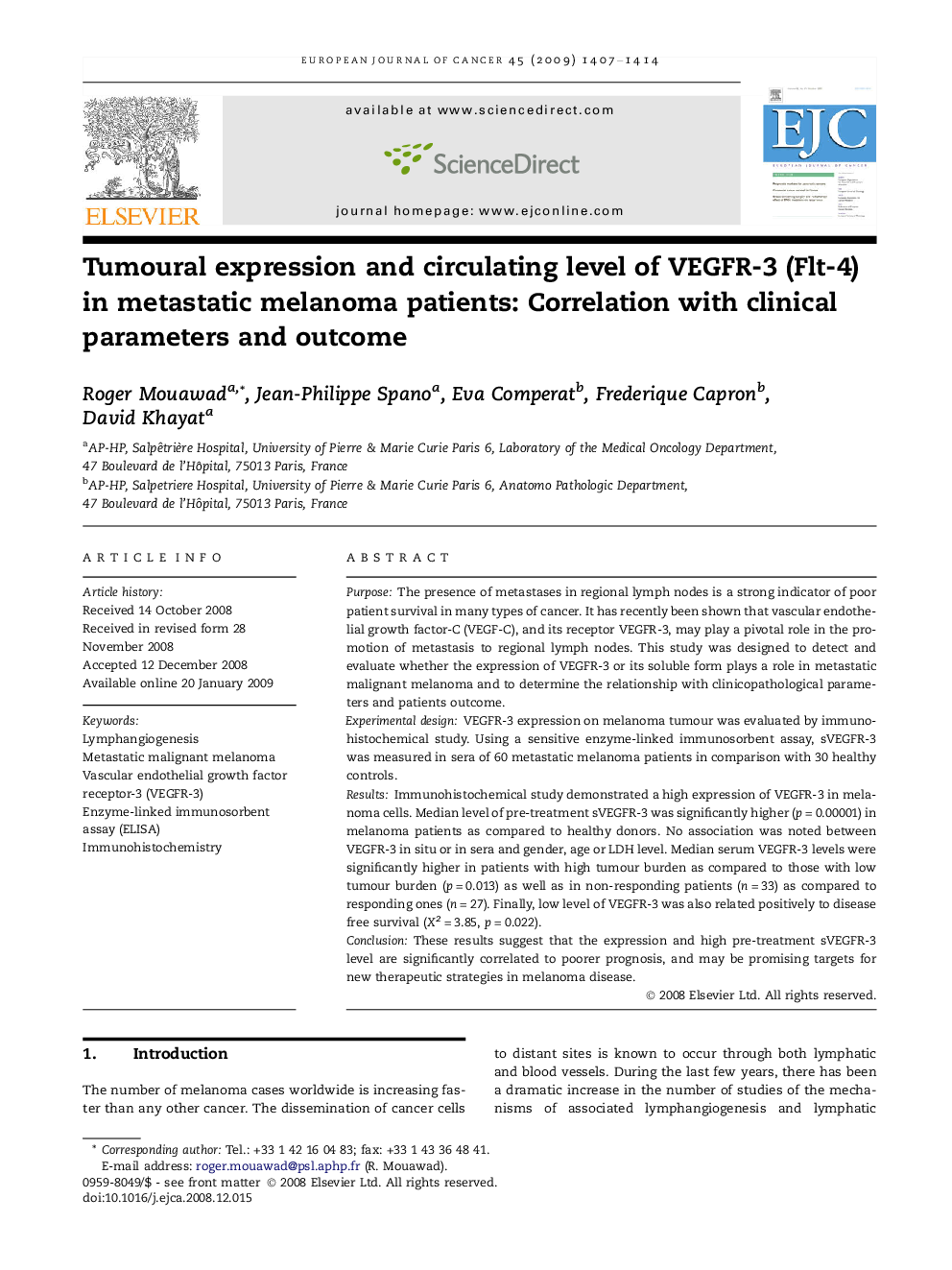| Article ID | Journal | Published Year | Pages | File Type |
|---|---|---|---|---|
| 2123745 | European Journal of Cancer | 2009 | 8 Pages |
PurposeThe presence of metastases in regional lymph nodes is a strong indicator of poor patient survival in many types of cancer. It has recently been shown that vascular endothelial growth factor-C (VEGF-C), and its receptor VEGFR-3, may play a pivotal role in the promotion of metastasis to regional lymph nodes. This study was designed to detect and evaluate whether the expression of VEGFR-3 or its soluble form plays a role in metastatic malignant melanoma and to determine the relationship with clinicopathological parameters and patients outcome.Experimental designVEGFR-3 expression on melanoma tumour was evaluated by immunohistochemical study. Using a sensitive enzyme-linked immunosorbent assay, sVEGFR-3 was measured in sera of 60 metastatic melanoma patients in comparison with 30 healthy controls.ResultsImmunohistochemical study demonstrated a high expression of VEGFR-3 in melanoma cells. Median level of pre-treatment sVEGFR-3 was significantly higher (p = 0.00001) in melanoma patients as compared to healthy donors. No association was noted between VEGFR-3 in situ or in sera and gender, age or LDH level. Median serum VEGFR-3 levels were significantly higher in patients with high tumour burden as compared to those with low tumour burden (p = 0.013) as well as in non-responding patients (n = 33) as compared to responding ones (n = 27). Finally, low level of VEGFR-3 was also related positively to disease free survival (X2 = 3.85, p = 0.022).ConclusionThese results suggest that the expression and high pre-treatment sVEGFR-3 level are significantly correlated to poorer prognosis, and may be promising targets for new therapeutic strategies in melanoma disease.
